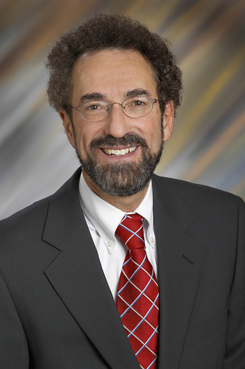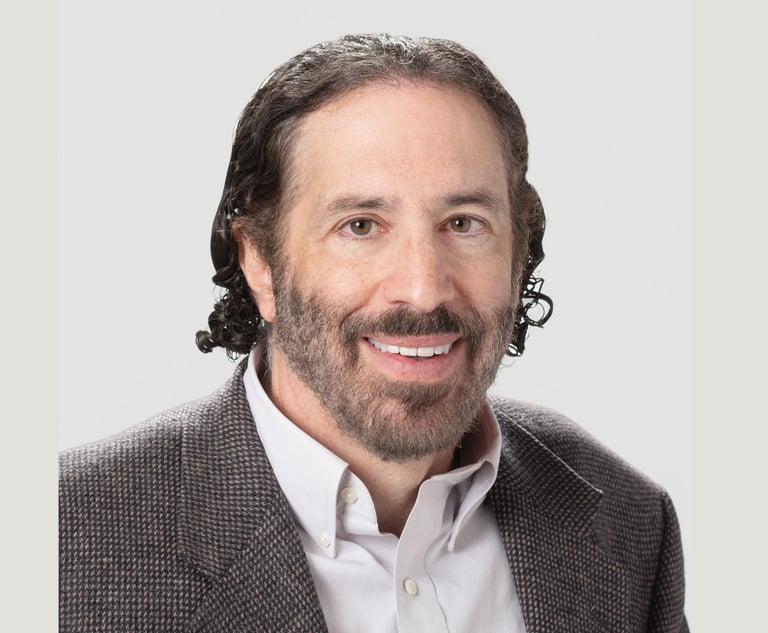When Does Music Cross the Line From Art to Criminal Conduct?
In one of the most interesting cases the Pennsylvania Supreme Court has decided this term, Justice Thomas Saylor writing for the majority in Commonwealth v Knox, held that lyrics of a rap song may lead to criminal charges.
October 04, 2018 at 01:58 PM
4 minute read
 Cliff Rieders
Cliff Rieders
In one of the most interesting cases the Pennsylvania Supreme Court has decided this term, Justice Thomas Saylor writing for the majority in Commonwealth v. Knox, held that lyrics of a rap song may lead to criminal charges. With criminal charges pending involving heroin and guns, the defendants wrote and recorded a rap song titled “F—k the Police.” This was put on video with still images of the police officers in question.The rappers were looking into the camera and motioning as if firing weapons. The video was uploaded to YouTube by a third party and the YouTube link was placed on a publicly viewable Facebook page titled “Beaz Mooga.” The trial evidence strongly suggested it belonged to one of the composers.
The lyrics of the rap video are full of crude and sexual expressions, rich with well-known Anglo-Saxon profanity. The police officers were explicitly referred to by name in the rap lyrics and suggests, at least implicitly if not explicitly, violence against the police.
The police officers testified how upset they were by the lyrics and one of the officers said it was a major reason why he quit the force. The commonwealth sought convictions for witness intimidation and terroristic threats. The court found the rappers guilty on both counts of witness intimidation and terroristic threats. The Pennsylvania Supreme Court upheld the verdict.
The rapper claimed the song was “merely artistic” and that he never intended to threaten the police. The court looked very closely as to whether expressive rights are “absolute.” Speech that threatens unlawful violence can subject the speaker to criminal sanctions. The government may criminalize “true threats” but not mere political hyperbole. Threats of violence fall outside the First Amendment's protective scope, as in Watts v. United States, 394 U.S. 705, 708, 89 S. Ct. 1399 (1969) (per curiam).
Whether this case will make it to the U.S. Supreme Court is a matter of interesting speculation. In order for First Amendment protections to be overcome, the government must prove that the speech was uttered “with the highest level of scienter, namely, a specific intent to intimidate or terrorize,” as in Knox.
Anyone who has listened to the rap that our children imitate will be shocked. However, shock is not enough to constitute a crime where the First Amendment stands in the way of a conviction. Rather, if parents or others are upset by rap lyrics, then we need to have a national conversation about what we are saying to each other, the public, our families and children.
In the Knox case the officers convinced the court that they had a legitimate reason to believe that the defendant-rapper might engage in violence. It is relevant that the police were aware that a loaded firearm had been found near the defendant's feet in an automobile he was driving. However, the rapper was ultimately acquitted of the firearms charges. The firearm charges stemmed from the weapon's presence in the car in which the drugs were found. The video was posted to the internet and seen by the officers well before the trial that resulted in the acquittal on the firearm charges.
The Pennsylvania Supreme Court acknowledged that rap music containing violent imagery is not necessarily meant to represent an intention on the singer's part to carry through the actions described. Music is a form of art. The court also noted the “unique history and social environment” from which rap arose. The stage persona of a rap artist may be different than what that rapper is really like. Perhaps the rapper is just trying to make money by extolling violence. Maybe the rapper is looking for a following of empty-headed, bored youngsters. “In many instances, lyrics along such lines cannot be reasonably understood as a sincere expression of the singer's intent to engage in real-world violence,” according to the opinion.
The court found that the rap lyrics in this case fell outside of the protections of the First Amendment. Look for this case not to be the end of this debate on the important subject of wondering where music crosses a line from “art” to criminal conduct.
Cliff Rieders, of Rieders, Travis, Humphrey, Waters, & Dorhmann, is a board-certified trial advocate in Williamsport, past president of the Pennsylvania Trial Lawyers Association and a past member of the Pennsylvania Patient Safety Authority. Contact him at [email protected].
This content has been archived. It is available through our partners, LexisNexis® and Bloomberg Law.
To view this content, please continue to their sites.
Not a Lexis Subscriber?
Subscribe Now
Not a Bloomberg Law Subscriber?
Subscribe Now
NOT FOR REPRINT
© 2025 ALM Global, LLC, All Rights Reserved. Request academic re-use from www.copyright.com. All other uses, submit a request to [email protected]. For more information visit Asset & Logo Licensing.
You Might Like
View All
Pa. Superior Court Rules Pizza Chain Liable for Franchisee Driver's Crash
4 minute read
Patent Pending ... and Pending ... and Pending? Brace Yourself for Longer Waits
3 minute read
Boosting Litigation and Employee Benefits Practices, Two Am Law 100 Firms Grow in Pittsburgh
3 minute read
Harrisburg Jury Hands Up $1.5M Verdict to Teen Struck by Underinsured Driver
3 minute readTrending Stories
- 1Rejuvenation of a Sharp Employer Non-Compete Tool: Delaware Supreme Court Reinvigorates the Employee Choice Doctrine
- 2Mastering Litigation in New York’s Commercial Division Part V, Leave It to the Experts: Expert Discovery in the New York Commercial Division
- 3GOP-Led SEC Tightens Control Over Enforcement Investigations, Lawyers Say
- 4Transgender Care Fight Targets More Adults as Georgia, Other States Weigh Laws
- 5Roundup Special Master's Report Recommends Lead Counsel Get $0 in Common Benefit Fees
Who Got The Work
J. Brugh Lower of Gibbons has entered an appearance for industrial equipment supplier Devco Corporation in a pending trademark infringement lawsuit. The suit, accusing the defendant of selling knock-off Graco products, was filed Dec. 18 in New Jersey District Court by Rivkin Radler on behalf of Graco Inc. and Graco Minnesota. The case, assigned to U.S. District Judge Zahid N. Quraishi, is 3:24-cv-11294, Graco Inc. et al v. Devco Corporation.
Who Got The Work
Rebecca Maller-Stein and Kent A. Yalowitz of Arnold & Porter Kaye Scholer have entered their appearances for Hanaco Venture Capital and its executives, Lior Prosor and David Frankel, in a pending securities lawsuit. The action, filed on Dec. 24 in New York Southern District Court by Zell, Aron & Co. on behalf of Goldeneye Advisors, accuses the defendants of negligently and fraudulently managing the plaintiff's $1 million investment. The case, assigned to U.S. District Judge Vernon S. Broderick, is 1:24-cv-09918, Goldeneye Advisors, LLC v. Hanaco Venture Capital, Ltd. et al.
Who Got The Work
Attorneys from A&O Shearman has stepped in as defense counsel for Toronto-Dominion Bank and other defendants in a pending securities class action. The suit, filed Dec. 11 in New York Southern District Court by Bleichmar Fonti & Auld, accuses the defendants of concealing the bank's 'pervasive' deficiencies in regards to its compliance with the Bank Secrecy Act and the quality of its anti-money laundering controls. The case, assigned to U.S. District Judge Arun Subramanian, is 1:24-cv-09445, Gonzalez v. The Toronto-Dominion Bank et al.
Who Got The Work
Crown Castle International, a Pennsylvania company providing shared communications infrastructure, has turned to Luke D. Wolf of Gordon Rees Scully Mansukhani to fend off a pending breach-of-contract lawsuit. The court action, filed Nov. 25 in Michigan Eastern District Court by Hooper Hathaway PC on behalf of The Town Residences LLC, accuses Crown Castle of failing to transfer approximately $30,000 in utility payments from T-Mobile in breach of a roof-top lease and assignment agreement. The case, assigned to U.S. District Judge Susan K. Declercq, is 2:24-cv-13131, The Town Residences LLC v. T-Mobile US, Inc. et al.
Who Got The Work
Wilfred P. Coronato and Daniel M. Schwartz of McCarter & English have stepped in as defense counsel to Electrolux Home Products Inc. in a pending product liability lawsuit. The court action, filed Nov. 26 in New York Eastern District Court by Poulos Lopiccolo PC and Nagel Rice LLP on behalf of David Stern, alleges that the defendant's refrigerators’ drawers and shelving repeatedly break and fall apart within months after purchase. The case, assigned to U.S. District Judge Joan M. Azrack, is 2:24-cv-08204, Stern v. Electrolux Home Products, Inc.
Featured Firms
Law Offices of Gary Martin Hays & Associates, P.C.
(470) 294-1674
Law Offices of Mark E. Salomone
(857) 444-6468
Smith & Hassler
(713) 739-1250





